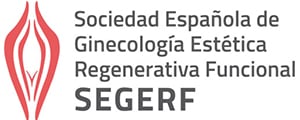VOLTAR
IMCAS World Congress 2019
IMCAS World Congress 2019
Programa
S030
Female genital evidence based medicine: what really works today (in collaboration with SEGERF)
Sala: Room 242 (level 2)
Data: quinta-feira 31 janeiro 2019 de 15:00 às 16:00
Formato: FOCUS SESSION > lectures covering a major topic of the congress
Data: quinta-feira 31 janeiro 2019 de 15:00 às 16:00
Formato: FOCUS SESSION > lectures covering a major topic of the congress
Apresentações desta sessão
| Horas | Palestrantes | Título da apresentação | Resumo | Número |
| 15:00 | Presentation of SEGERF | 82833 | ||
| 15:05 | Other EBD (RF, US, UF) | 78293 | ||
| 15:17 | Laser in gynecology: safety and efficiency | 78289 | ||
| 15:29 | PRP and PRP-HA application in gynecology (under an educational grant) | Visualizar | 82349 | |
| 15:41 | Systematic review of literature: conclusion | Visualizar | 78295 | |













